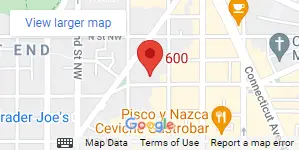I have worked in international exchange for my whole career. I have seen up close how the exchange of ordinary people — students, teachers, scholars, and professionals — has changed lives, impacted institutions, affected policy, and drawn our world closer together despite language, cultural, and political divides.
From the immediate post-Soviet period, when we saw Eastern Europe and Eurasia open up, to the post 9/11 era, when we saw an increase in Arabic learning and exchange to better understand the diverse cultures of the Middle East and North Africa, we have seen international exchange shape our world in ways that have enabled more peace, more prosperity, and better global understanding.
In more recent years, we have seen isolationism, nationalism, and anti-globalism threaten these gains in peace, prosperity, and understanding. The answer to this challenge, simply put, is more exchange, as our fear and distrust of unknown cultures subside when we meet, live, work, and study with people who are different than ourselves.
Today, as we confront a pandemic the likes of which have not been seen in 100 years, we face perhaps our most profound challenge. Despite the travel restrictions and social distancing that have led to a disruption in face-to-face exchange, we need the exchange of ideas and expressions of humanity across cultures, languages, and borders more than ever. The pandemic has proven conclusively that our problems are truly global. But so are our solutions. Global problems are best solved through global cooperation. Making it possible for the best and brightest international students to participate in the search for solutions at our universities is an important part of this.
When we finally have the vaccines, treatments, or other protocols that make it safe to return to work, school, and travel, we will need to redouble our efforts to ensure that our youth, students, teachers, and professionals can resume the face-to-face exchanges that enrich individuals, communities, countries, and the world. We need to do so in order to address the global problems we will continue to face — economic recession, isolationism, inequality and marginalization, and climate change, just to name a few — while also making sure that we are better prepared as a global community to address the next public health challenge.
But we cannot simply put exchanges on hold. We need to embrace the technologies that allow so many of us to work, teach, and learn from home to create and foster a global exchange community virtually. We at Amideast are exploring ways to create new virtual spaces for collaboration, learning, and cultural exploration, and to expand and improve existing virtual spaces to reach marginalized communities and realize the great aspiration of universal access that virtual exchange promises.
In our new normal, we will be faced with all the problems of today, along with new challenges we haven’t even contemplated. And we will need robust exchanges to bring together more people, in new ways, and with new opportunities to develop personally, understand the global world we all inhabit, and contemplate the best ways that we can all work together. Doing so will enrich us as individuals, strengthen our communities, bring wisdom to our policy makers, and better unite us all globally.

